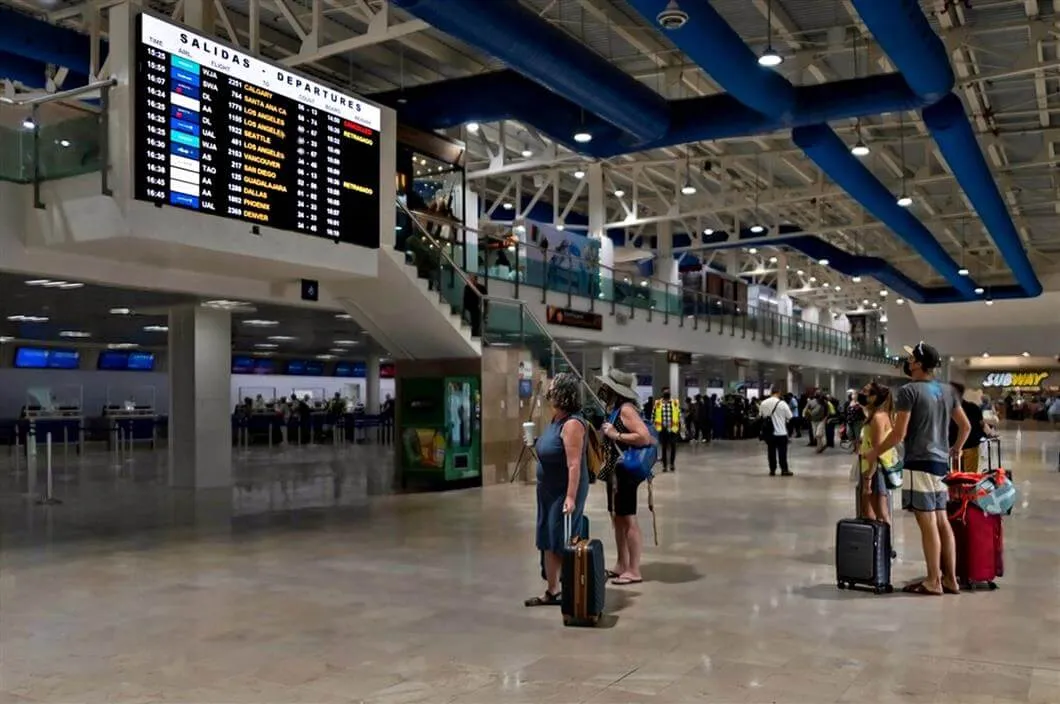
The United States Government issues travel alerts for every country on the planet. The problem is that, in Mexico’s case, these warnings could dry up one of the most important revenues that the country's economy has – tourism.
Tourism is not just an industry, it is the only one that offers the most possibilities for rapid and sustained growth. The warning the U.S. authorities against any travel to Mexico is caused by high crime rates and violence.
When the United States warns against traveling to Mexico, its intention is not to harm the country but rather to protect its citizens from being harmed by the ignorance of traveling to an inherently dangerous place.
Despite the travel alerts from the State Department Mexico is extremely attractive to foreigners from all over the world who continue to visit the country.
There are four levels of travel advisory:
Level 1 - Exercise normal precautions.
Level 2 - Exercise increased caution around yourself.
Level 3 - Reconsider traveling to that site.
Level 4 - Do not travel to that location.
Countries that the State Department in Washington assigns a travel advisory level of 2 or higher and also assigns an indicator of high risk. Nowadays all of Mexico is from level 2 to level 4.
The US government marked the following six Mexican states with level 4, the top of warnings not to travel:
- Colima: “Violent crime and gang activity are widespread. Kidnappings of Americans”.
- Guerrero: “Crime and violence are widespread. Armed groups operate independently of the government. Kidnappings of Americans”.
- Michoacán: “Crime and violence are widespread throughout the state. Kidnappings of Americans are widely reported”.
- Sinaloa: “Violent crime is widespread. Armed groups operate independently of the government”.
- Tamaulipas: “Organized crime activity, including shootings, murders, armed robberies, vehicle theft, kidnappings, enforced disappearances, extortion, and sexual assaults”.
- Zacatecas: “Violent crime, extortion, and gang activity are rampant in the state of Zacatecas. Kidnappings of Americans are widely reported”.
More than 30 million US citizens traveled to Mexico in the first 11 months of 2022. Not only that, the AAA agency revealed that international tourist trips in the high season to Mexico increased by 30 percent compared to 2021.

However, media also reported that Mexico is a “volatile” area and listed FBI data with the cases of 625 US citizens who were kidnapped in Mexico in 2021 - almost two cases every day. It is a scandal! But Americans continue to visit Mexico.
Before the pandemic, more than 88 million foreign tourists opted to travel to Mexico, almost as many as to France – the most visited country on the planet.
According to AAA, the American Automobile Association, which is the most consulted travel service by Americans, Cancun, the Riviera Maya and Mexico City are some of their main destinations during spring break. Cancun and the Riviera Maya are in the state of Quintana Roo, where travelers are advised to “Exercise Greater Caution”.
As a general rule, criminals in Mexico are careful not to kill foreign tourists. However, that is not always true.
In Los Cabos, at the tip of the Baja California peninsula and the Caribbean coast, state and local officials have recently sought help from the United States to take on organized crime that threatens to scare away tourists.
The states of Baja California and Quintana Roo, already exasperated, asked the FBI and the DEA (Drug Enforcement Administration) in order to share their intelligence information to combat crime connected to drug trafficking. This led to a pause in shootings between gangs in the tourist areas of Quintana Roo, and there are local reports that drug sales to satisfy foreign demand no longer take place on the streets, although they continue, but more discreet.
Most U.S. and foreign tourists who travel to Mexico spend memorable vacations without incident. But that does not appear in the media.
As long as things do not change in Mexico, the warnings from the United States will become more serious. In addition, Canada and the United Kingdom are already issuing similar notices.










